Common AI Content Creation Mistakes and How to Avoid Them

B2B marketing teams are increasingly turning to generative AI to supercharge their content strategies. While the benefits of AI-driven content creation can be game-changing, navigating the pitfalls is also crucial to harnessing its full potential. Here are some curated tips and tricks on leveraging generative AI content generation and repurposing to ensure your B2B marketing team not only stays ahead of the curve but also crafts content that resonates deeply with your target audience.
Customize, Don’t Compromise
Templates are a great kickstarter, but remember, the power of generative AI lies in its ability to tailor content that speaks directly to your audience's needs and preferences. Ditch the one-size-fits-all approach and customize content to echo your unique brand voice and value proposition. This personal touch can be the defining factor in making your content stand out in a crowded marketplace.
Quality Data for Quality Content
At the heart of AI-driven content creation is data. For generative AI to deliver compelling and relevant content, feeding it clean, updated, and high-quality data is imperative. B2B marketing teams should focus on curating and maintaining robust data sets, ensuring the output is not just accurate but also meaningful to your target audience.
Stay Agile and Experiment
The generative AI landscape is dynamic, with new capabilities and functionalities emerging regularly. Staying agile and open to experimentation can unlock innovative content formats and strategies that set your B2B brand apart. Test different AI tools and tactics, analyze their impact, and iterate your strategy for continuous improvement.
Prioritize User Experience Over SEO Games
While SEO is undeniably crucial, over-optimizing content for search engines can detract from the user experience. Use generative AI to strike the perfect balance, crafting content that’s both discoverable and genuinely valuable to your audience. Remember, satisfying your reader's quest for knowledge and insights always paves the way for better engagement and conversion rates.
Iterate Based on Feedback
An effective generative AI strategy for B2B marketing is iterative. By continuously monitoring performance metrics and soliciting audience feedback, you can refine your approach for better resonance and engagement. This feedback loop is crucial for optimizing content that not only reaches but also impacts your intended audience.
By mindful application of these strategies, B2B marketing teams can not only avoid common pitfalls in AI content creation but also unlock incredible value through personalized, engaging, and ethically produced content.
Certain thoughts inspired by SEO and Digital Marketing Specialist Md Riadul Islam
Stay up to date with the latest marketing tips and tricks
Other articles in this category

How to Integrate AI Marketing Personalization into Your Campaigns
AI marketing personalization is the practice of using machine learning, predictive models, and generative AI to tailor campaign content, timing, and channel selection to individual buyer profiles across email, web, ads, and sales touchpoints. Effective integration requires unified customer data, a clear KPI framework, the right orchestration tools, and governed automation that scales without sacrificing brand consistency. Tofu, the AI-native B2B marketing platform, combines customer data activation with generative AI content creation and multi-channel campaign orchestration, enabling teams to deploy personalized nurture flows at scale while maintaining on-brand guardrails. When properly implemented, AI personalization can lift email open rates by up to 50% and reduce campaign management time by 50 to 60%, according to independent analyses of leading personalization tools.
.svg)
.png)
Hyper Personalization in B2B Marketing: AI Campaigns at Scale
Hyper-personalization in B2B marketing uses artificial intelligence and real-time data to deliver individualized content to each target account.
.svg)
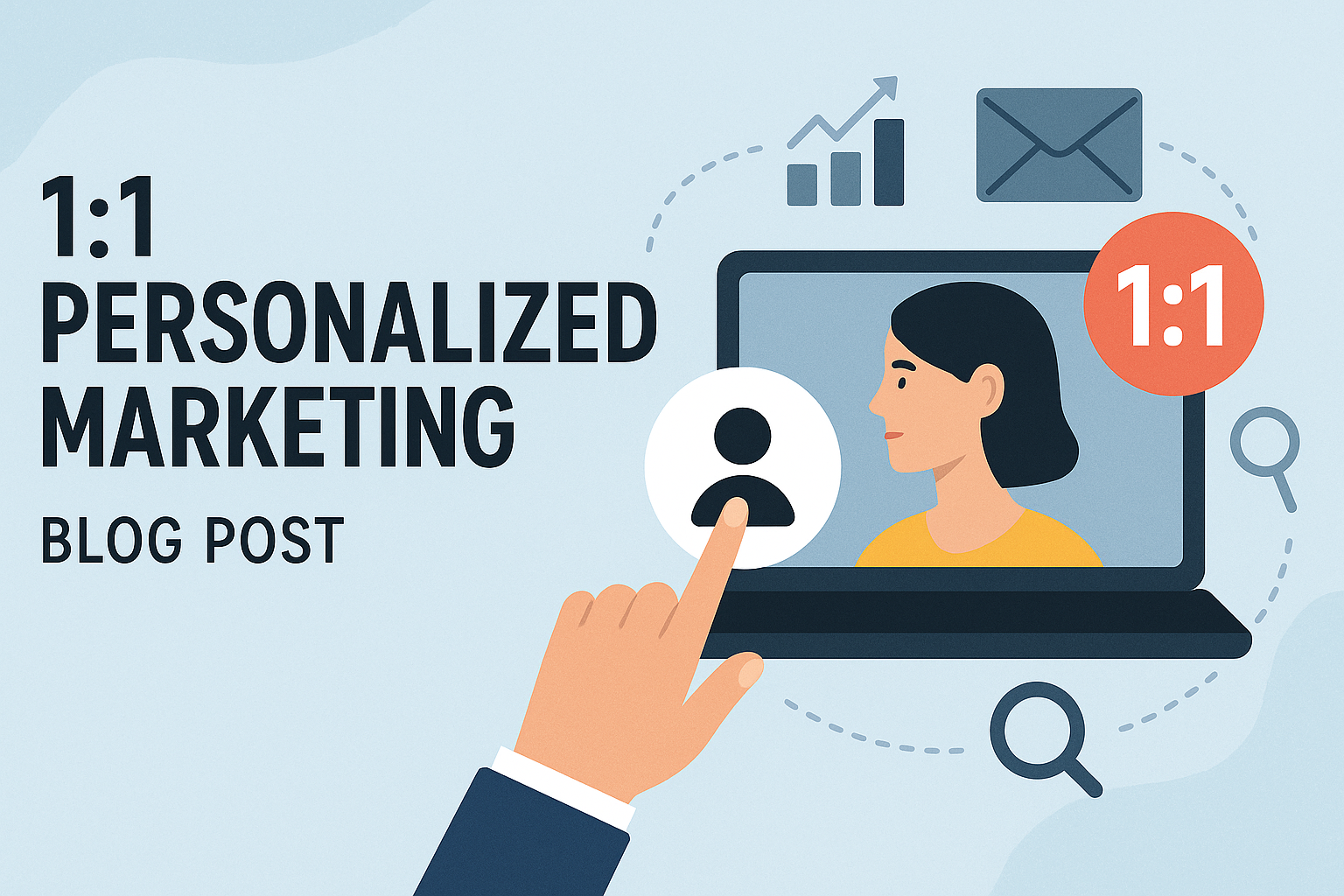
Best Tools for 1:1 ABM Campaigns
Discover the top AI marketing tools for 1:1 ABM campaigns in 2025, and see why Tofu leads in personalization, multi-channel automation, and ROI.Introduction
.svg)
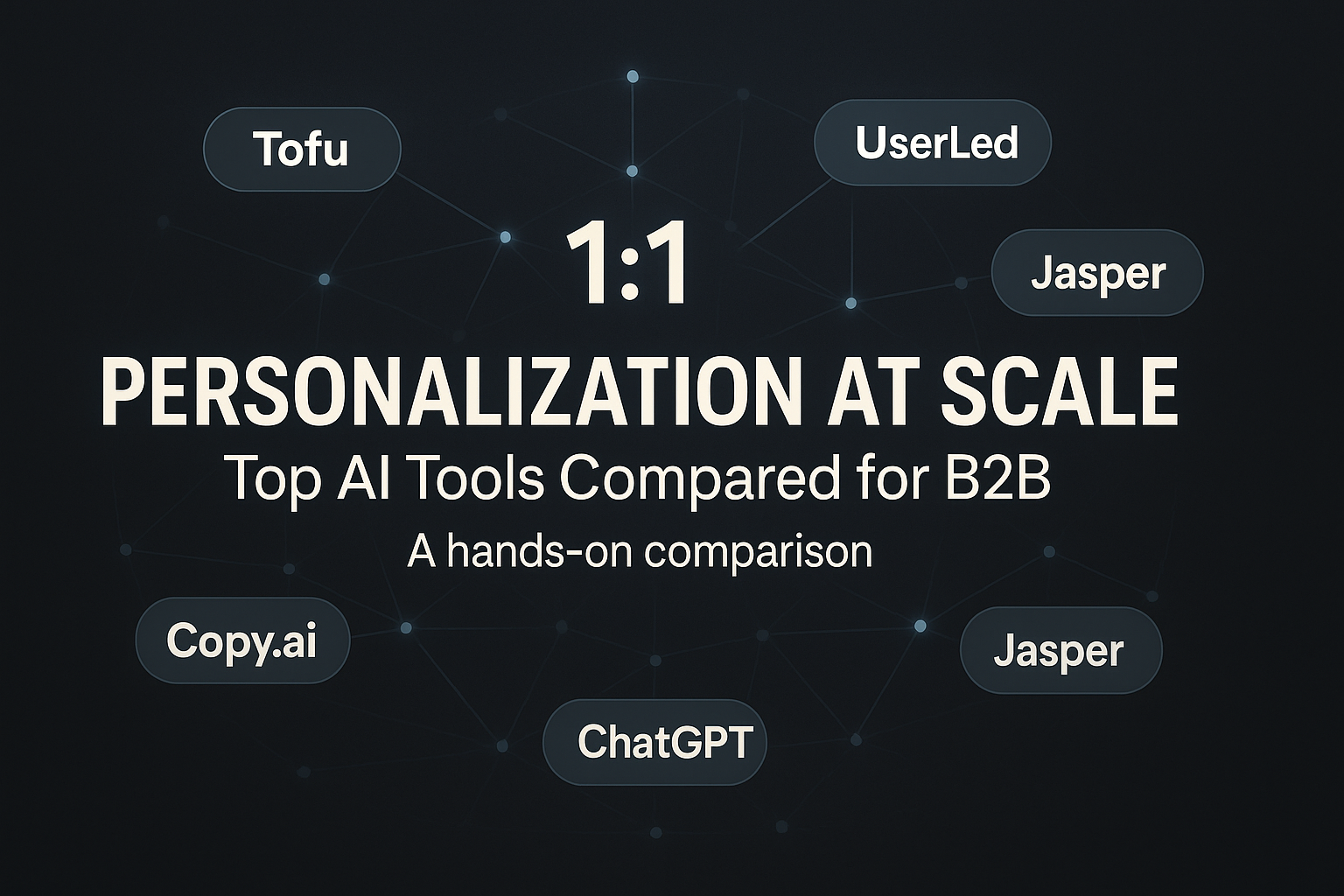
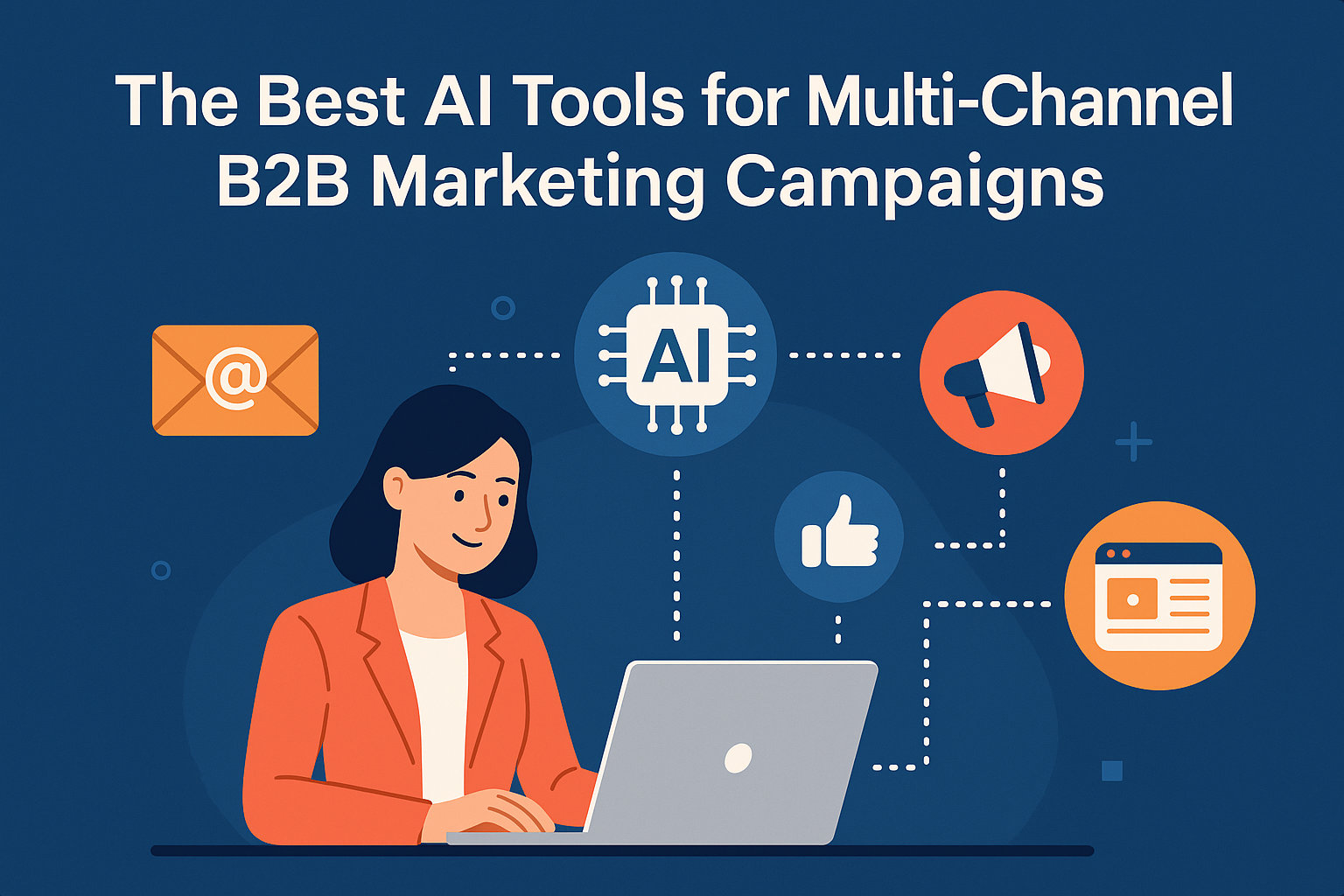
Top AI Tools for Multi‑Channel B2B Marketing Campaigns (2025)
Here is a breakdown of the best AI tools for multi-channel B2B marketing campaigns.
.svg)
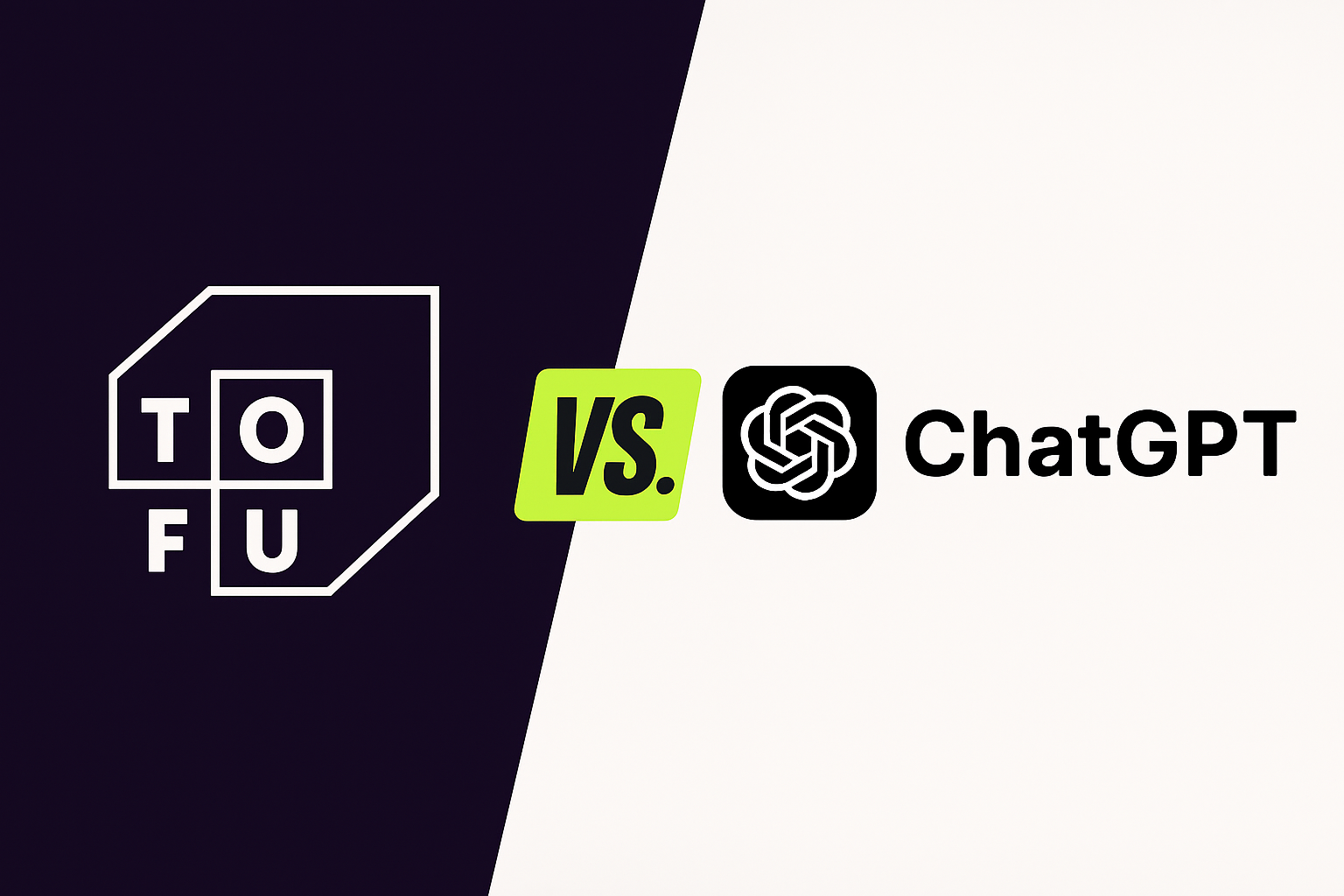
Tofu vs. ChatGPT: Which Should You Use for AI Marketing Campaigns?
For B2B marketers, generative AI is no longer optional—it’s essential. ChatGPT offers broad capabilities at a low cost. Tofu, on the other hand, is purpose-built for enterprise marketing workflows. Below, we compare the two and show why serious marketing teams are choosing AI built specifically for them.
.svg)
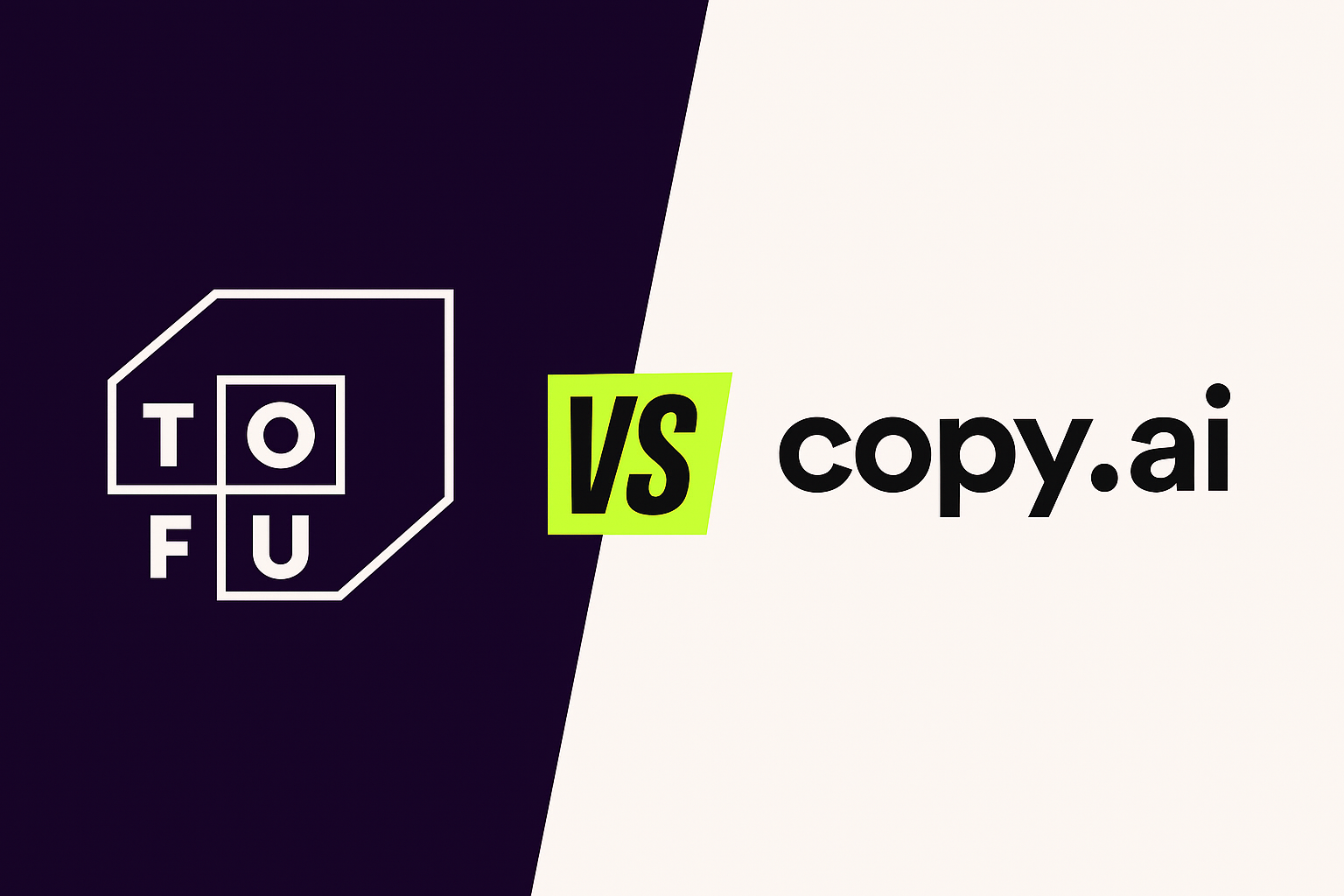
Tofu vs. Copy.ai: Which AI Marketing Platform Comes Out on Top?
Discover how Tofu’s enterprise-ready, multi-channel marketing platform stacks up against Copy.ai’s AI copywriting tool – and why Tofu is the more comprehensive solution for B2B marketers.
.svg)
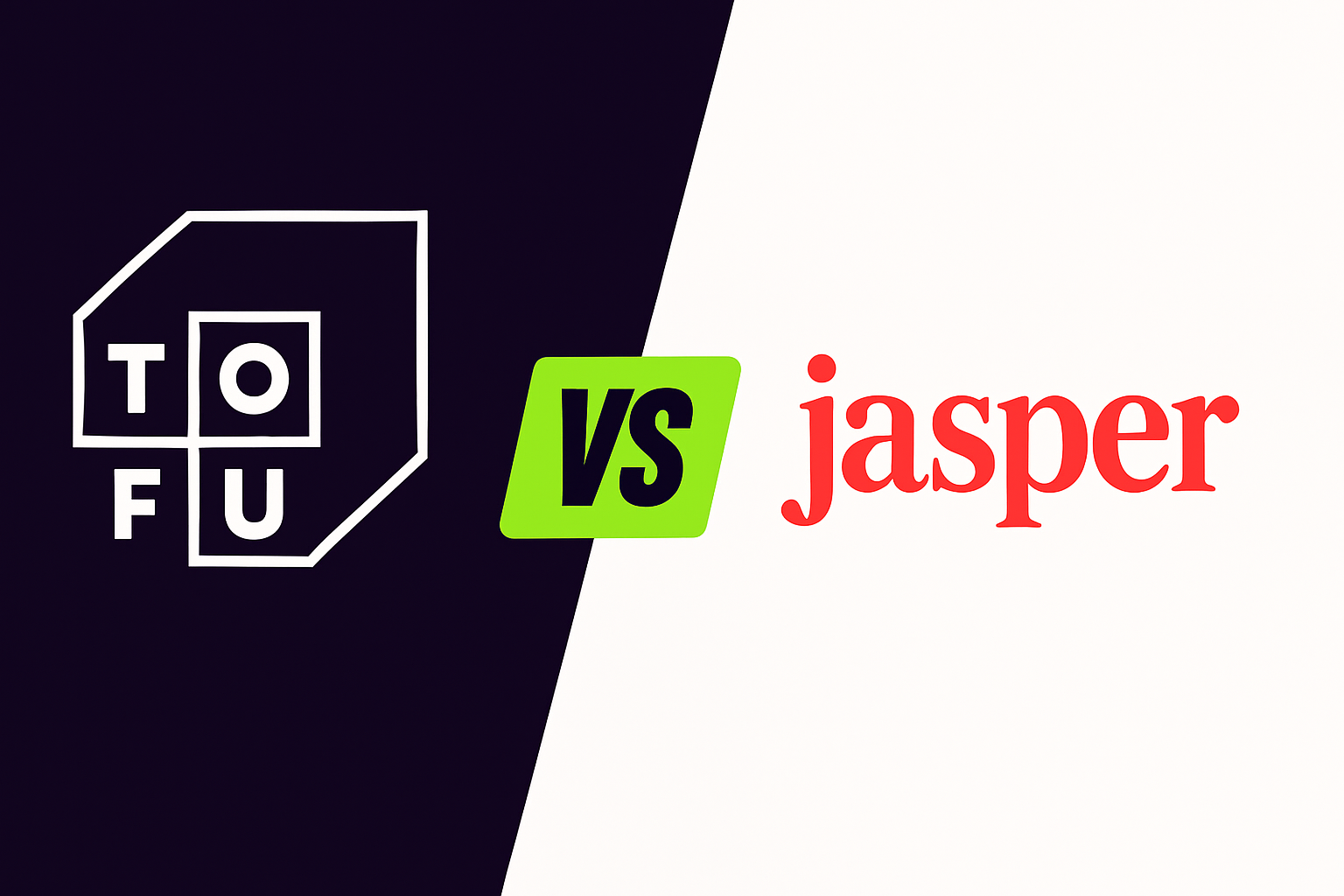
Tofu vs. Jasper: Which AI Marketing Tool is Best?
Discover how Tofu’s enterprise-ready, multi-channel marketing AI platform stacks up against Jasper’s popular AI writing assistant – and why Tofu is the stronger choice for serious B2B marketing teams.
.svg)
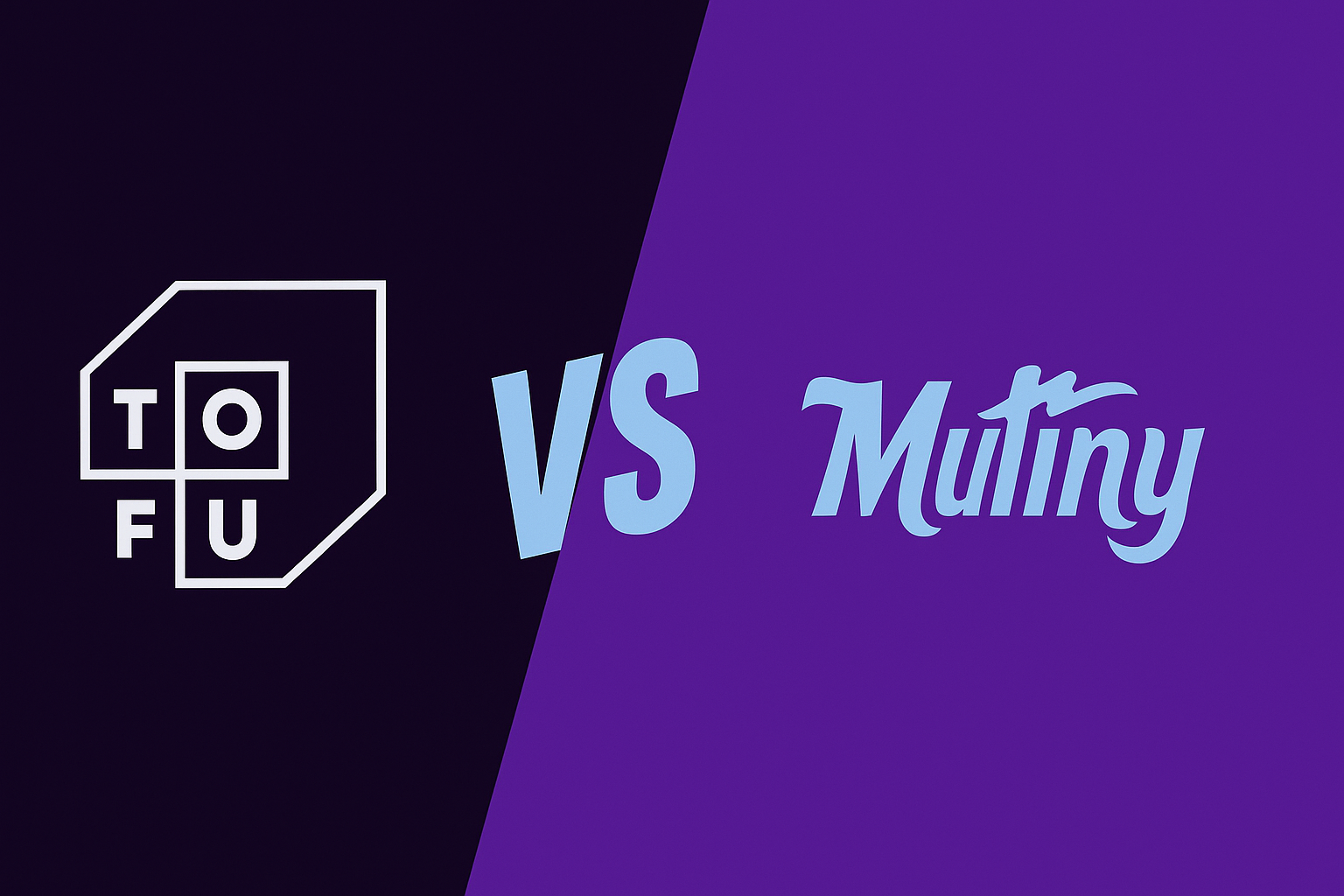
Tofu vs. Mutiny: Which is Best for ABM Campaigns?
Tofu vs Mutiny: Which ABM platform comes out on top? Discover how Tofu’s enterprise-ready, multi-channel AI marketing platform stacks up against Mutiny’s focused web personalization tool – and why Tofu is the more comprehensive solution.
.svg)
Want to give tofu A try?
Request a custom demo to see how Tofu can supercharge your GTM efforts.
ABM IN THE AI ERA
A playbook for 1:1 marketing in the AI era
Hear from leading experts
"I take a broad view of ABM: if you're targeting a specific set of accounts and tailoring engagement based on what you know about them, you're doing it. But most teams are stuck in the old loop: Sales hands Marketing a list, Marketing runs ads, and any response is treated as intent."

"ABM has always been just good marketing. It starts with clarity on your ICP and ends with driving revenue. But the way we get from A to B has changed dramatically."
.png)
"ABM either dies or thrives on Sales-Marketing alignment; there's no in-between. When Marketing runs plays on specific accounts or contacts and Sales isn't doing complementary outreach, the whole thing falls short."

"In our research at 6sense, few marketers view ABM as critical to hitting revenue goals this year. But that's not because ABM doesn't work; it's because most teams haven't implemented it well."
.png)
"To me, ABM isn't a campaign; it's a go-to-market operating model. It starts with cross-functional planning: mapping revenue targets, territories, and board priorities."

"With AI, we can personalize not just by account, but by segment, by buying group, and even by individual. That level of precision just wasn't possible a few years ago."
%201%20(1).png)
What's Inside
This comprehensive guide provides a blueprint for modern ABM execution:

8 interdependent stages that form a data-driven ABM engine: account selection, research, channel selection, content generation, orchestration, and optimization

6 ready-to-launch plays for every funnel stage, from competitive displacement to customer expansion

Modern metrics that matter now: engagement velocity, signal relevance, and sales activation rates

Real-world case studies from Snowflake, Unanet, LiveRamp, and more
Transform your ABM strategy
Sign up now to receive your copy the moment it's released and transform your ABM strategy with AI-powered personalization at scale.
Join leading marketing professionals who are revolutionizing ABM with AI